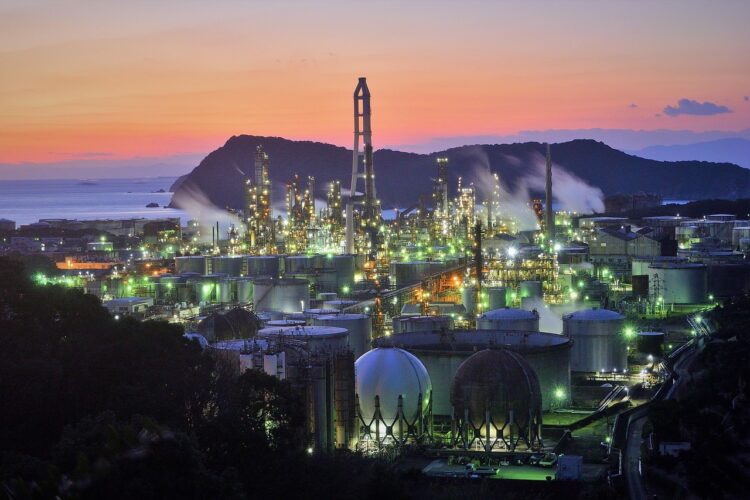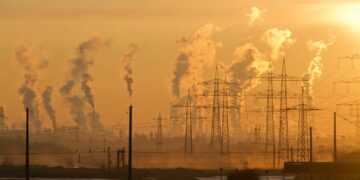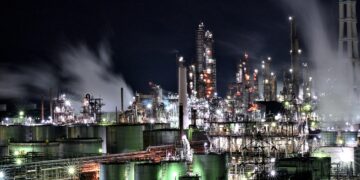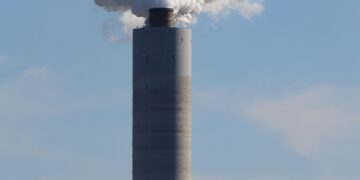Human Activities and Climate Change: Unveiling the Cascading Effects on Global Ecosystems
The interconnection between human activities and climate change is undeniably pivotal in shaping the health and functionality of global ecosystems. This article explores the profound implications of human influences on climate and evaluates their cascading effects on natural habitats, wildlife, and human societies worldwide.
Understanding the Link Between Human Actions and Climate Change
Human activities, primarily the burning of fossil fuels like coal, oil, and natural gas, are the most significant contributors to climate change. These actions release vast amounts of carbon dioxide (CO₂) and other greenhouse gases into the atmosphere, enhancing the natural greenhouse effect and leading to global warming. Deforestation for agriculture and urban development further exacerbates this effect by reducing the planet’s capacity to absorb CO₂. Industrial processes, agricultural practices, and waste management also contribute a substantial share of greenhouse emissions.
Direct Impacts of Climate Change on Global Ecosystems
Climate change affects ecosystems in a number of direct ways:
- Rising Temperatures: Global warming has led to increased temperatures worldwide, affecting wildlife and altering their migratory patterns, breeding seasons, and habitat compositions.
- Altered Precipitation Patterns: Changes in rain patterns and water availability affect plant life and agricultural practices, disrupting food systems for humans and countless species.
- Ocean Acidification: Increased levels of CO₂ in the atmosphere lead to the acidification of oceans, affecting marine biodiversity, particularly organisms sensitive to calcium carbonate concentrations like corals and shellfish.
Secondary Consequences: Biodiversity Loss and Extinction Rates
One of the cascading effects of climate change is an accelerated rate of biodiversity loss. Species extinction rates are now estimated to be 1000 times the natural baseline rate, primarily due to habitat loss, changing climate conditions, and fractured ecosystems that impair the survival of diverse species.
Impact on Human Societies
The impact of climate change extends beyond the natural world and profoundly affects various sectors of human society:
- Agriculture: Changes in temperature and precipitation patterns significantly impact crop yields, agricultural productivity, and the livelihoods of millions, contributing to food insecurity.
- Health: Rising temperatures and changing climate patterns intensify the spread of infectious diseases. Regions previously uninhabitable by disease-carrying vectors like mosquitoes are now facing new health challenges.
Global Efforts to Mitigate Climate Change
Addressing the vast challenges posed by climate change requires concerted global efforts to reduce greenhouse gas emissions and implement adaptive strategies. Initiatives include:
- International Agreements: Critical agreements such as the Paris Agreement unite countries in reducing carbon emissions and limiting global warming to below 2 degrees Celsius above pre-industrial levels.
- Renewable Energy: Increasing the investment in renewable energy sources such as wind, solar, and hydroelectric power to decrease reliance on fossil fuels.
- Conservation Efforts: Protecting and restoring forests, wetlands, and other critical habitats to enhance the natural absorption of CO₂, protect biodiversity, and insure against climate change extremes.
Public Engagement and Education
Public understanding and involvement are crucial in tackling climate change. Awareness campaigns and educational programs can empower individuals to make informed decisions about energy use, conservation, and personal habits contributing to climate change. Additionally, grassroots movements can exert pressure on policymakers to prioritize climate-friendly policies and sustainable practices.
Frequently Asked Questions About Human Activities and Climate Change
What Are the Most Significant Human Activities Contributing to Climate Change?
The most significant contributors are fossil fuel combustion for energy, deforestation for land use, and industrial practices releasing high levels of greenhouse gases.
Can Individual Actions Really Make a Difference in Combating Climate Change?
While individual actions alone may seem insignificant, collective efforts can drive significant environmental benefits and influence larger systemic changes.
What Can I Do to Help Mitigate Climate Change?
Individuals can reduce their carbon footprint by using energy-efficient appliances, reducing meat consumption, recycling, and supporting policies and products that are environmentally sustainable.
Conclusion
The challenge of climate change is immense and requires a global response. Understanding the role of human activities in this dynamic allows us to find viable solutions that protect our planet and ensure a sustainable future for all species, including humans.











